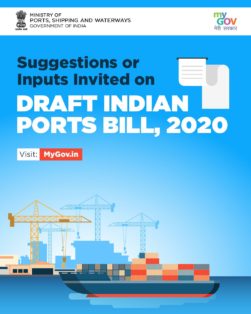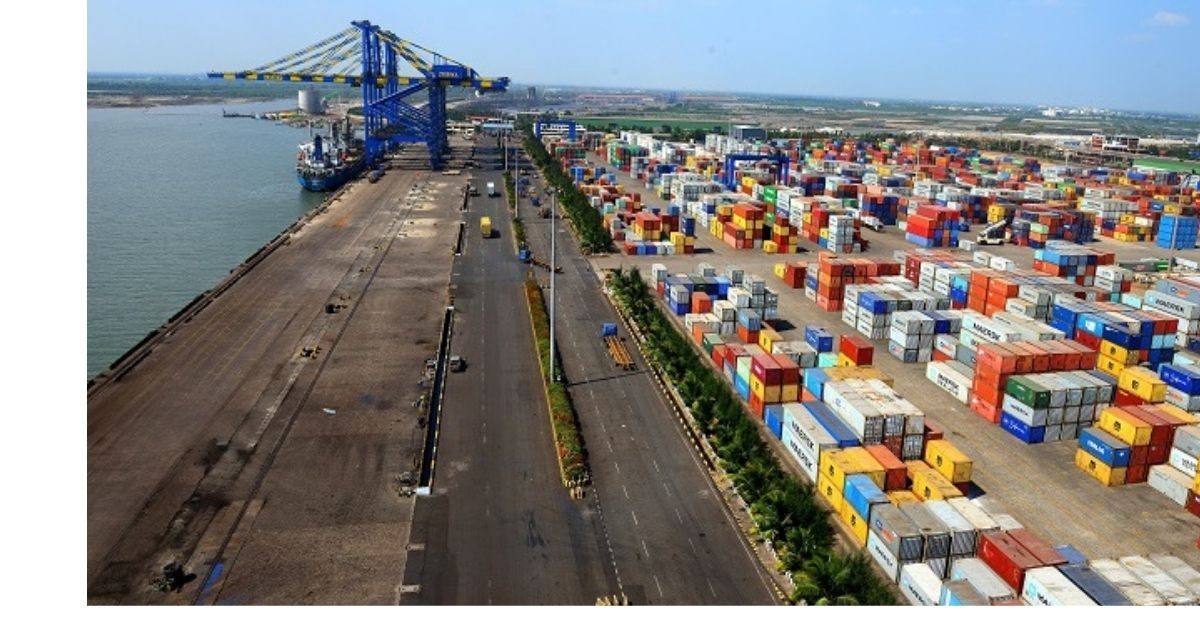In the recently concluded 18th meeting of the Maritime States Development Council (MSDC), which was organized by the Ministry of Ports Shipping and Waterways (MoPSW) the central government has proposed and asked ministers from the state governments for the discussion on the new ‘Draft Indian Ports Bill 2021’.
The proposal by the MoPSW has received disagreement mostly from the non-BJP ruled states including Tamil Nadu, Odisha, and Andhra Pradesh. The state governments have expressed their dissent to the proposed bill because it mandates the centralization of many routine functions to MSDC, which has so far been only an advisory body.
Moreover, the state governments oppose it because many powers currently implemented by state governments would be transferred to the Union Government. While the central government says that the proposed bill would enable the best management and utilization of the coastline by way of participation by both the central government and maritime states/union territories (UTs).
Maritime Gateway looks into the differences in the draft Indian Ports Bill 2021, its necessity and presents the analysis to understand the core issue.

What Indian Ports Bill-2021 proposes?
The proposed draft Indian Ports Bill 2021 intends to modify the existing management model of minor ports, which hitherto have been in the hands of state governments. Currently, under the Indian Ports Act, 1908, the power to plan develop, regulate and control the minor ports are bestowed to state governments.
Conventions pertaining to safety, security, and prevention of pollution are incorporated in the new IP Bill 2021 for implementation.
The draft bill proposes to fill the gap by adding regulatory teeth to the toothless Maritime State Development Council (MSDC) that now simply ‘advises’ the state maritime boards.
The proposed bill ensures the right of the central government in notifying a new port, the channels it will use, and limiting the boundary of the port.
The proposed changes made in the bill are aimed at consolidating the approach in handling maritime environment and safety issues, which is in line with the global practices. The issue is primarily about accountability in case of an accident or calamity.
Why Indian Ports Bill-2021 is opposed by States?
The state governments have vehemently opposed the draft Indian Ports Bill-2021 fearing that it could dent their autonomous role over minor ports and the federal spirit. The state governments opposing the bill have put forth the argument that the present system has led to the good development of minor ports under the states, and if the bill gets implemented they won’t have any major role to play in minor ports development.
The need for IP Bill 2021
Though the argument on the spirit of federalism put forth by some states for opposing the Indian Ports Bill 2021 seems to be ideal, practically the IP bill 2021 can bring about a host of advantages for the maritime sector in the country.
The traffic handled by the Indian ports in the FY 2020 was 1.2 billion metric tonnes (MT). It is expected to touch a mark of 2.5 billion MT by 2030. But only a few ports in India are capable of handling capsize vessels, as many ports don’t have deeper draft facilities. Moreover, there are around 100 non-functional ports located across the country.
Nevertheless, the ever-increasing size of ships makes it essential to develop deeper draft ports. In order to augment the existing infrastructure at ports, a national-level approach is imperative. Several international studies including World Bank highlighted the need to have a national-level integrated port planning in the country.
The IP bill 2021 makes it easy to implement an integrated development plan, based on the priority, for ports in India irrespective of the existing classification of major and minor ports.
Port development requires huge public investment in creating basic infrastructure like highways, rail connectivity, rolling stock, etc. Moreover, the investments in the infrastructure suffer from long gestation. SagarMala project implemented by the central government has been transforming the Indian maritime sector by unlocking the potential of waterways and the coastline in the country with huge investments.
State governments with their limited resources may not pour huge amounts of money into the port development and they also may not attract huge private investments. Therefore, it is wise to transfer some powers to the central government and MSDC for the speedy development of some strategic minor ports in the country.
The existing Indian Ports Act, 1908 was not designed to attract huge private investments, as it was not prepared for the present context. Therefore it is high time to change such an act for the improvement of the maritime sector in the country.
It is the federal responsibility of the states to rise above the political differences and accept the centralization of powers in the areas of marine pollution, safety, security. Both center and State governments have to work in tandem to ensure that all ports in the country follow the due rules and regulations with equal earnest.







